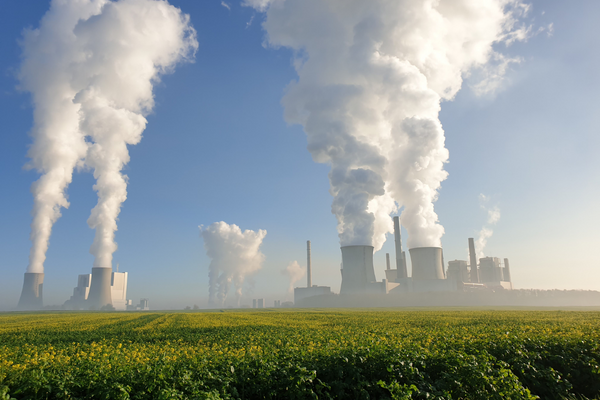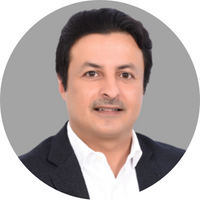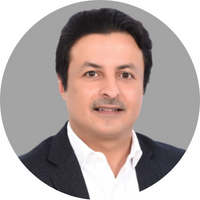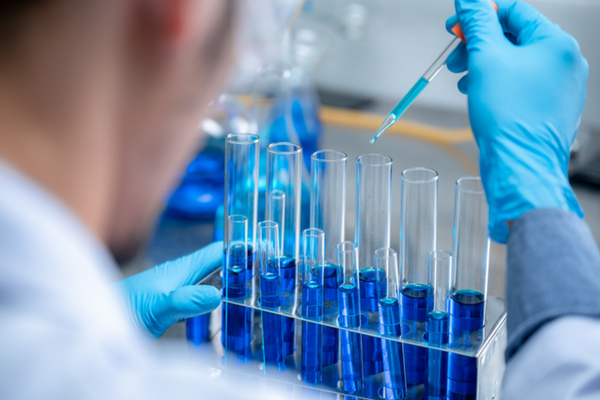
You recently transitioned from a role leading research strategy in Saudi Arabia to one leading R&D in the US. Can you speak to the decision surrounding that transition? What impact will this have on your career? On the business?
I have the responsibility of streamlining communications among business lines, advancing research, and championing innovation in my current role at Aramco Americas.
By combining my technical background, project and research experience, and business acumen, I can help identify technology gaps, next-generation technologies, and faster deployment of technologies in the Kingdom for value generation. Our research teams in the U.S. are contributing to Aramco’s global R&D network and building strong partnerships for collaboration with universities and other strategic alliances to address a wide range of energy challenges. The impact to our business has been demonstrated with the increase in the number of patents and technologies being deployed in the field.
Aramco Americas R&D is spread over sites in Houston, Boston, and Detroit. How do you successfully lead teams that are in such different locations?
It requires careful consideration when leading teams based in different geographic locations and with different focus areas. The Aramco Research Center-Houston focuses on upstream research and technology development to achieve breakthroughs in the discovery and recovery of hydrocarbon resources. The Aramco Research Center-Boston specializes in computational reservoir modeling, advanced separation systems and materials, nanotechnology, and novel corrosion-resistant materials for oil and gas and chemical applications. The Aramco Research Center-Detroit is dedicated to innovation in transportation and is a key contributor to Aramco’s global engines and fuels program. Our work in Detroit promotes the development and adoption of efficient, sustainable, and affordable transport solutions for the future.
Across all centers we are growing our portfolio of sustainability projects.
The credit for success goes to the diverse teams we have. My role is nurturing Aramco’s innovation culture, driving the research, setting goals, and achieving the best results. Also, collaboration has been a successful strategy for us by engaging with universities and other institutes to spur new ideas and discoveries.
What are the biggest changes in the oil and gas industry you’ve lived through? What are the changes on the horizon that most excite you?
I have witnessed some major changes in the oil and gas industry over the years. In 2015, the industry turned its attention to the introduction of Industrial Revolution 4.0. This included advanced materials and other upstream portfolios, nanoscience, and a mandate for more sustainable production to reduce CO2 emissions per barrel.
The pandemic has highlighted the need for new technologies to strengthen oil and gas businesses.
Looking ahead, I am most excited about the possibilities for learning through the application of new technologies such as artificial intelligence and delivering real-time decision-making in the energy sector.
What are the non-technical skills you rely on to succeed in your job? How did you acquire and develop them?
Coaching, engagement, communication, collaboration, and negotiation. At one time these were considered soft skills, but they are necessary for successful leadership. You learn them over time and from good mentors. Working in project teams teaches you the importance of recognizing the work of your researchers and providing them with the support to be successful.
What’s the most significant sustainability issue confronting your industry and what is your plan to address it? How do you prioritize sustainability centered projects versus other technologies?
The most significant sustainability issue confronting the oil and gas industry is the need to reduce greenhouse gas emissions. To address this, the industry needs to prioritize the development of low-carbon technologies and advancements in hydrogen production, e-fuels, and carbon capture and underground storage. These technologies have the potential to reduce emissions and carbon footprint while continuing to provide reliable energy sources.
Our industry needs to prioritize initiatives to improve energy efficiency and reduce energy waste, such as improving the efficiency of equipment and processes, and introducing renewable energy sources.
I would place sustainability-centered projects as a top priority to create a more sustainable future for the oil and gas industry. This would include reallocating resources to reduce emissions, increasing research and development in clean energy, and investing in the development of low-carbon technologies. By doing this, the industry can strive to reduce its environmental impact while continuing to provide reliable energy sources.
Aramco Americas is a subsidiary of Saudi Aramco which employs over 70,000 people worldwide. What are the benefits and challenges in working for a large international company?
Working for a large international company like Saudi Aramco has its unique set of benefits and challenges. As a subsidiary Aramco Americas researchers have a great opportunity to interact with a diverse international community. We have access to resources, research, and the ability to collaborate with colleagues in Europe and Asia. Furthermore, being based in Houston, which is a leading center for energy, offers additional opportunities to engage with national labs and other institutes.
In your organization, how do chemists and engineers work together? What can each side learn from the other?
The way chemists and engineers work together in an organization depends on the nature of the work. Generally, chemists and engineers will collaborate to develop and optimize products, processes, and systems that meet customer needs. The two disciplines can learn from each other in terms of their approaches to problem-solving and the different perspectives they bring to the table.
Engineers learn from chemists the chemical and physical properties of materials as well as the principles of chemical reactions, while chemists learn from engineers the application of these principles to practical engineering problems. By combining their knowledge and expertise, they can create innovative solutions and new approaches to complex problems.
What were the major influences in shaping your leadership and management philosophy?
My leadership and management philosophy has been greatly shaped by my mentors and supervisors. I feel very fortunate to have had such influential mentors that have enabled me to reach the highest levels of success.
I believe in the importance of working with a team. I am open to feedback and different approaches when making constructive decisions benefitting the organization. Lastly, learn from mistakes, and seek out training in leadership roles to further your understanding of what it takes to be a successful leader.
As a thank you for participating in ACS Boss Talk, we’ll treat you to vacation anywhere on your list of dream destinations. Where are you heading?
I am not revealing the choice of destination because I do not want to follow any itinerary while on my dream vacation. But thank you ACS.

Mohammed Alaskar is the Director of Research & Development, at Aramco Americas, the U.S.-based subsidiary of Saudi Aramco. He is responsible for oversight of Aramco’s R&D program in the United States, with three research centers located in Houston, Boston, and Detroit.
Before his current assignment, Alaskar was the Chief Technologist of the Strategic Technology Analysis Division at Saudi Aramco’s Upstream Advanced Research Center (EXPEC ARC), and the COO of Saudi Aramco’s Upstream Technology Company. His other leadership positions included assistant to the Vice President of Petroleum Engineering & Development.
Alaskar has authored several journal publications and conference proceedings, and actively participates in professional societies. He holds a Bachelor of Science degree in Mechanical Engineering from King Fahad University of Petroleum and Minerals, a Master of Science degree in Mechanical Engineering and Material Science from the University of Southern California, and a PhD in Energy Resources Engineering from Stanford University.
This article has been edited for length and clarity. The opinions expressed in this article are the author's own and do not necessarily reflect the view of their employer or the American Chemical Society.
Copyright 2022 American Chemical Society (All Rights Reserved)












